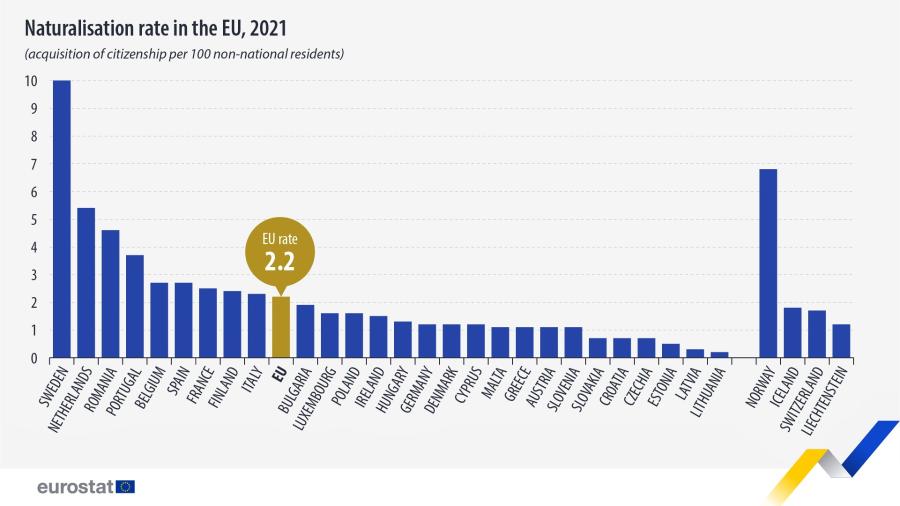No other EU country issued more citizenships in relation to its population size in 2021 than Sweden. At the same time, the number of new citizenships in the EU reaches its second highest level.
In 2021, 827,000 people acquired citizenship of the EU Member State where they lived, an increase of around 14% (+98,300 people) compared with 2020.
The largest increases in acquisitions in absolute terms were recorded in France (+43,900 French citizenships granted compared with 2020), Germany (+18,800), Spain (+17,700), Sweden (+9,200) and Austria (+7,200) ).
The majority of new citizenships were granted by Spain (144,000; 17% of EU total), France (130,400; 16%), Germany (130,000; 16%), Italy (121,500; 15%) and Sweden (89 400 or 11%) accounting for 75% of new citizenships granted in the EU in 2021.
In 2021, the highest naturalization rate among EU countries was registered in Sweden, with 10.0 citizenships granted per 100 resident non-nationals. Sweden was followed at a distance by the Netherlands (5.4). At the other end of the scale, naturalization rates below 1 citizenship acquisition per 100 resident non-nationals were recorded in Lithuania (0.2), Latvia (0.3), Estonia (0.5)
As of 2020, the majority (85%) of those who obtained citizenship of an EU Member State in 2021 were previously citizens of a non-EU country or stateless. Citizens of another EU country accounted for 13% of the total number of citizenships acquired.
In 2021, similar to 2020, Moroccans were the largest group among new EU citizens (86,200 people, of whom 71% acquired citizenship of Spain or France), ahead of Syrians (83,500, 70% acquired citizenship of Sweden or Netherlands), and Albanians (32,300, 70% acquired citizenship of Italy).
